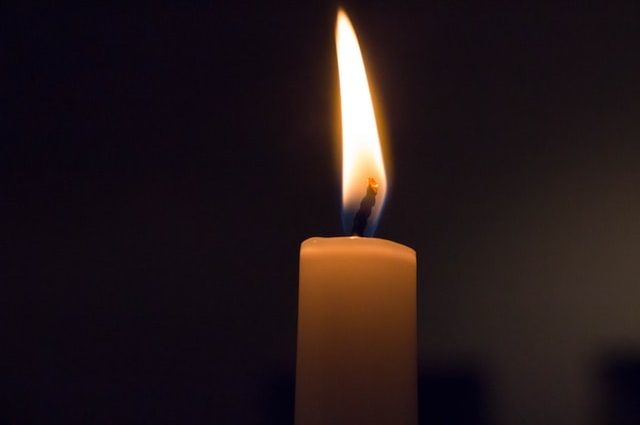Content warning: this article discusses sexual harassment.
After the tragic case of Sarah Everard, many women are coming out with similar stories and reflecting on how it could’ve easily happened to them. Living in fear is something that seems to have become a norm for women, and when a police officer whose responsibility is to protect is arrested on suspicion of murder, it’s no wonder this is the case.
Despite the progress we’ve made on how women are treated since the 20th century, there are still major changes yet to occur. But it shouldn’t take a tragedy in order to acknowledge that we need them.
There are many actions that have become normal for women to do through fear of safety, from carrying keys between their fingers to saving money for a cab.
These behaviours are choices that have become so familiar that we fail to question them. Behaviours that we carry out in order to survive. But in light of recent events, it’s evident that even then we’re not guaranteed survival.
“We shouldn’t have to have a safety checklist just to walk home. We shouldn’t have to live in fear.”
That’s where the fear comes from. The fear that it could’ve easily been any one of us. We’re not born with this fear; it’s learned through being taught the world isn’t safe. In a survey carried out by UN Women UK, 97% of 18-24-year-olds said they’ve experienced sexual harassment.
It’s become evident how conditioned women are to modify behaviour to protect themselves because as a society we don’t question it until something terrible occurs. We shouldn’t have to have a safety checklist just to walk home. We shouldn’t have to live in fear.
“Ignoring these behaviours, even if it’s not every man, is like ignoring rules surrounding the pandemic just because not every person will catch it.”
It requires action and education from all parties to actively work to end violence towards women; women are too often blamed even though they are not the problem. These behaviours aren’t perpetrated by all men, but enough that something needs to be done about it. Not all sharks are deadly, but we’re still taught to be wary of them.
Statistics suggest that men are victims of street violence too, but more often than not this is caused by male, and not female, behaviour. Ignoring these behaviours, even if it’s not every man, is like ignoring rules surrounding the pandemic just because not every person will catch it. There’s still a huge risk.
“When tragedy happens it’s like being hit by the train of reality.”
I believe it often takes a tragedy for society to wake up to these facts as these behaviours have become autopilot; both toxic masculinity and female fear, so when tragedy happens it’s like being hit by the train of reality.
Dismantling the patriarchy starts with unpicking the roots of the systemic gender stereotypes which have an effect on how we think and behave. We have to break away from and call out ‘toxic masculinity’ and traditional harmful behaviours that have become the ‘norm.’
This doesn’t mean condemning men as people but rather that we should emphasise and teach about the harmful effects of conforming to certain masculine ideals.
Eradicating unnecessary gender constructs is part of the change needed to put an end to fear and harmful behaviour.
A productive conversation on this issue is also necessary for awareness, change and mental stability to ensure that as a society we are less likely to conform to the unnecessary beliefs around gender roles that the patriarchy feeds us.
The pandemic has only heightened gender inequalities further. Data released by UN women suggests there could be a gender equality regression of 25 years, as a result of increased domestic work and family care at home, and enforcement on the release of gender pay gap data has been set back for another six months.
“When breaking these down, it’s not one against the other but a collective issue we must face.”
But a lack of equality hasn’t just appeared as a result of the pandemic. In October 2020, The World Ranking of the Inter-Parliamentary Union found that only 14 of the 193 United Nations have a woman in the highest position of executive power.
These imbalances influence our mentality surrounding behaviour and societal constructs. When breaking these down, it’s not one against the other but a collective issue we must face.
It’s not just about those who identify as female coming together but ensuring that we all are standing up for women’s safety and rights.
“Women have been repeating these conversations for too long”
It would be unfair to say women are requesting men to be perfect as that’s unrealistic; they just want to feel safe. There are systemic problems but it also requires individual initiative from men to stop harassing, objectifying and victim-blaming women.
Awareness and willingness to learn is part of the change we need. It takes supporting, openness and listening to what others have to say.
Women have been repeating these conversations for too long and it takes men conversing with other men, listening to women, adequate prosecution and systemic changes in order to change the narrative.
Denying the validity of female concerns only contributes to women continuing to feel and be unsafe and it shouldn’t take a tragedy for these concerns to be acknowledged.
Danielle Saunders
Featured image courtesy of Janosch Diggelmann via Unsplash. Image license found here. No changes were made to this image.

